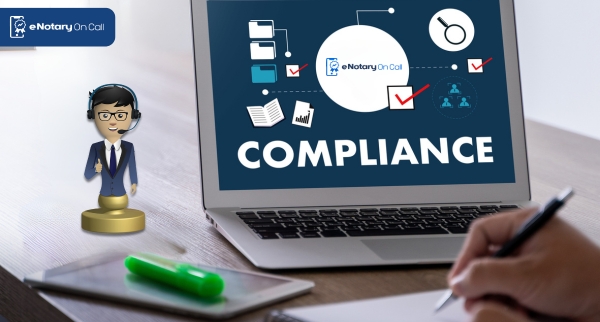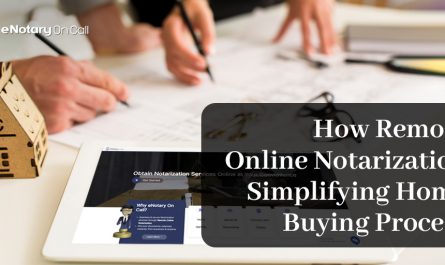Frauds related to property have become increasingly common across the USA in recent years, with a noticeable rise in incidents and costly consequences for those affected. Fraudsters are using sophisticated tactics, making it challenging for individuals to protect themselves. One of the less common yet significant types of fraud observed is deed fraud. As property has become a primary asset for many Americans, fraudsters find it easier to entrap individuals into signing fraudulent deeds.
This post is part of our effort to make you aware of ongoing deed fraud schemes and the role that online notarization plays in preventing them. While searching for ‘notarization near me‘ or choosing the virtual notary option, with many available options, it becomes essential to be a little attentive. Therefore, explore a certified remote online notarization platform, a trusted resource for conducting secure deed transfer transactions.
Common Deed Frauds
Forging Deeds to Transfer Ownership
One prevalent form of fraud involves the forgery of deeds, where criminals impersonate property owners to complete deed forms. This often includes using fake notarizations to legitimize fraudulent transactions. Additionally, some fraudsters manipulate notary records in collusion with county recorders to facilitate the unlawful sale of properties. Another common tactic is the unauthorized sale of vacant or rental properties.
Impersonating Companies to Manipulate Homeowners into Debt Relief Programs
Fraudsters frequently exploit publicly available records to identify homes with a history of tax or financial issues. By targeting these properties, they can more easily convince homeowners to relinquish their rights to ownership. This manipulation often involves enrolling owners in deceptive programs aimed at facilitating the theft of their property.
How to Prevent or Avoid Deed Fraud
MISMO Compliance
When transferring property, buyers, sellers, listing agents, and county records interact with various technology platforms. With so many options available, it can be challenging to determine which resources to trust.
This is where MISMO (the Mortgage Industry Standards Maintenance Organization) plays a crucial role in facilitating informed decision-making. MISMO compliance is a common standard in the mortgage industry, required by regulators and agencies, ensuring that all platforms meet the necessary guidelines. Integrating MISMO standards enhances efficiency and reduces errors throughout the mortgage process.
The eNotary On Call platform is both MISMO-compliant and certified, offering remote online notarization (RON) for documents.
The complete RON process provided by this platform ensures a secure notarization experience. Its strict requirements help prevent fraudulent activities by efficiently verifying identities and capturing and recording data, including audio and video verification.
Several reasons make the MISMO-compliant remote online notarization platform a trusted source:
- Confidence in Compliance: Users can trust the platform because it has met stringent guidelines for authentic RON services. Identity proofing and document retention adhere to established standards.
- Transparency: Compliance requires the platform to display specifications and provide live updates on the completion of notarization tasks.
- Quality Assurance: The MISMO-compliant platform evaluates its quality to ensure it meets remote online notarization needs effectively.
Research indicates that the majority of fraud occurs with quitclaim deeds. When mortgage closings take place outside traditional methods, MISMO compliance becomes particularly valuable. It assures that documents submitted to the county recorder are legitimate, thereby protecting both sellers and buyers during property transactions.
Quitclaim deeds executed through the MISMO-compliant RON platform are accepted by county recorders without issue. Additionally, the platform confirms that industry standards for identity verification and document retention have been met, regardless of the state. If there are still concerns, the county recorder can verify the notary who completed the notarization for the specific documents or individuals.
Did you know that some government-sponsored organizations provide lists of MISMO-certified platforms? This resource helps users quickly identify RON platforms that meet minimum standards, allowing them to begin the notarization process with confidence.
SOC Compliance
For the RON platforms, there are strict standards and certifications. However, beyond this, to verify the platforms are secure and not vulnerable to attacks, some software companies work on SOC type 2 certificates. This allows the handling of the sensitive data of the user, and it also builds a reputation that demonstrates that such solutions are serious about cyber security.
What is SOC?
SOC (Service Organization Control) is a voluntary audit developed by the AICPA that demonstrates how companies protect customer data across five key pillars: security, availability, processing integrity, confidentiality, and privacy.
Platforms like eNotary On Call, which is MISMO-certified, undergo these audits. The stringent security standards confirm that there is minimal risk of data access and information leakage. Therefore, it’s essential that platforms have completed SOC 2 Type II audits to ensure assurance and transparency during the notarization process.

Why Choose a SOC 2 Certified RON Platform?
- Ensures platforms follow adequate procedures
- Minimizes the risk of data breaches
- Adheres to strict guidelines for document notarization
When selecting a RON platform, consider the following safety and security questions related to documents such as deeds, power of attorney, and notices of cancellation:
- Does it follow audio-video conferencing protocols?
- Does it capture consent for signatures?
- Does it verify identity through a multi-step process?
- Does it offer an electronic signature feature?
- Does it utilize tamper-evident technology for ID verification?
- Does it comply with all state and local privacy and data security laws regarding electronic recording access?
MISMO compliant
Adherence to state-specific RON laws
API support for seamless integration, ADA compliance
Undergone through SOC 2 Type II certificate audit
Yes, our trusted platform ensures seamless security with end-to-end data encryption, transparent access rights tracking, and robust document authenticity verification.
Yes, basic training is required to ensure notaries can efficiently navigate the platform and comply with legal standards.
eNotary On Call team helps with notary training for error and hassle-free remote notarization



